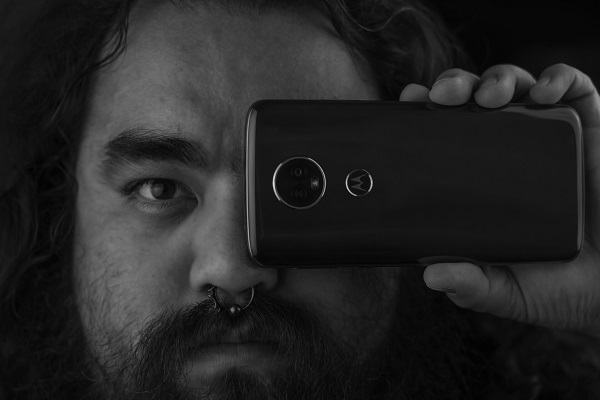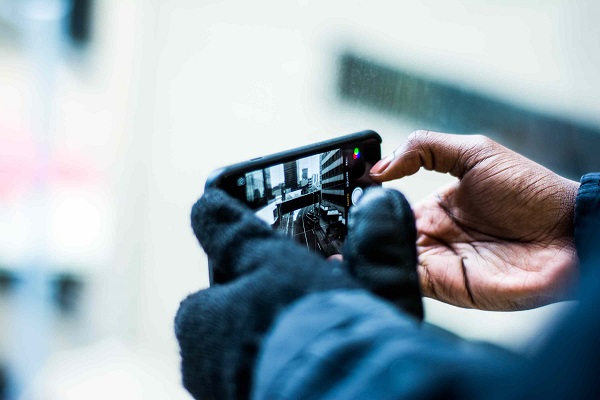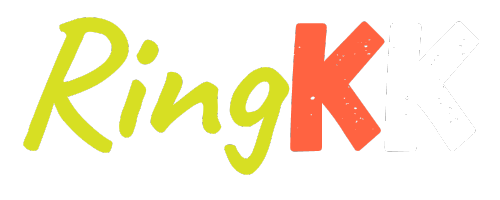– For personal photos, more than half of professional photographers use phone cameras.
– Camera phones can perform feats that are impossible to achieve with traditional cameras.
– If you utilize a small camera phone, clients will not take you seriously.
We’ll let you in on a little secret: professional photographers, like the rest of us, like their camera phones for the same reasons.
Dedicated camera hardware still produces superior results to your iPhone or Google Pixel camera, but that doesn’t always matter. When you combine the portability of a smartphone camera with computational photography capabilities that a DSLR can only dream of, you have a terrific tool for pros. In fact, one of the main reasons they don’t use their phones more for work is the fear that their clients won’t take them seriously.
In an email to Lifewire, pro photographer Weldon Brewster said: “There are not really any barriers these days. As a matter of fact, with Profoto lights, you can shoot with a camera phone and use studio flash. Imagine an Annie Leibovitz lighting setup with her big umbrellas and firing the flash from your phone. We’ve hit a golden age of photography right now.”

Convenience
According to a survey conducted by Suite48 Analytics, 64 percent of professional photographers use their smartphones for more than half of their personal photos. When it comes to taking photos for work, the percentage lowers to just 13%, albeit the survey results are a little misleading: The bottom line is that most professional photographers use their phones to take at least some of their work shots.
“Snapping photos using an iPhone is substantially more discreet than doing with a digital camera.”
Why? These are folks who know how to use a camera, after all. They are skilled enough to produce photos that are so good that others pay them to do it.
“When compared to a digital camera, taking a photo with your iPhone camera takes far less time. It takes longer to use your DSLR or mirrorless camera because you have to do more with it. You could have already taken a photo with your smartphone and set it down by the time your digital camera is turned on and in focus,” Lifewire received an email from Robert Johansson, CEO of AI image processing service Image Kits.
While some photographers make it a point to utilize an iPhone, and at least one did so when their conventional camera died, many others use it as a supplementary tool.
Brewster says: “I constantly have my camera phone with me, and I take thousands of images with it. From personal photos to scouting shots to rough comps, there’s something for everyone “.
Not all professional photographs are shot on large sets with elaborate lighting setups. Because street photographers work in the real world, they may place higher importance on discretion than image quality. You might see someone aiming a camera at you, but you probably don’t care if it’s just another person taking a selfie with their smartphone.
“Snapping photos using an iPhone is much more discreet than a digital camera. The use of cell phones to capture photographs has become more prevalent in recent years all across the world. Nobody seems to be paying attention anymore. You stand out more when you use a larger DSLR or even a mirrorless camera than when you use your smartphone, “said Johansson.

Special Features
Another advantage of camera phones is that they can perform tasks that a dedicated camera cannot. Night modes, instant HDR to preserve skies blue on contrasty days, automatic, flawless panoramas, and more are among the features available.
“I constantly have my camera phone with me, and I shoot thousands of images with it.”
Brewster says: “In many ways, I believe our camera phones’ computational photography is light years ahead of DSLRs. No professional camera, regardless of price, can match what an iPhone can do in portrait mode. When you factor in LiDAR and low light, you can see how far ahead the camera phones are “.
Seriously?
Phone pictures are still not up to par in terms of quality, but they are sometimes sufficient. Telling that to your clients, on the other hand, is another story.
Rafael Larin, a professional photographer, told Lifewire via email: “The main barrier to using an iPhone for a professional job is not being taken seriously as a professional. When someone hires a photographer, it is arguable that the last thing they want is for that photographer to conduct the photoshoot with an iPhone.”



















